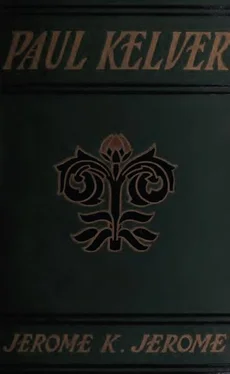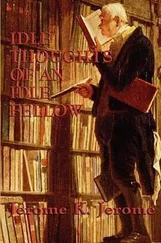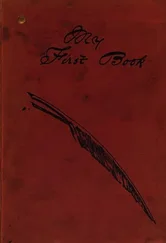Jerome Jerome - Paul Kelver
Здесь есть возможность читать онлайн «Jerome Jerome - Paul Kelver» весь текст электронной книги совершенно бесплатно (целиком полную версию без сокращений). В некоторых случаях можно слушать аудио, скачать через торрент в формате fb2 и присутствует краткое содержание. Город: New York, Год выпуска: 1902, Издательство: Dodd, Mead & Company, Жанр: Классическая проза, на английском языке. Описание произведения, (предисловие) а так же отзывы посетителей доступны на портале библиотеки ЛибКат.
- Название:Paul Kelver
- Автор:
- Издательство:Dodd, Mead & Company
- Жанр:
- Год:1902
- Город:New York
- ISBN:нет данных
- Рейтинг книги:3 / 5. Голосов: 1
-
Избранное:Добавить в избранное
- Отзывы:
-
Ваша оценка:
- 60
- 1
- 2
- 3
- 4
- 5
Paul Kelver: краткое содержание, описание и аннотация
Предлагаем к чтению аннотацию, описание, краткое содержание или предисловие (зависит от того, что написал сам автор книги «Paul Kelver»). Если вы не нашли необходимую информацию о книге — напишите в комментариях, мы постараемся отыскать её.
Paul Kelver — читать онлайн бесплатно полную книгу (весь текст) целиком
Ниже представлен текст книги, разбитый по страницам. Система сохранения места последней прочитанной страницы, позволяет с удобством читать онлайн бесплатно книгу «Paul Kelver», без необходимости каждый раз заново искать на чём Вы остановились. Поставьте закладку, и сможете в любой момент перейти на страницу, на которой закончили чтение.
Интервал:
Закладка:
But, alas! upon my pale lips the joyous shout sank into an unheard whisper, and the thing that became scattered to the wind was myself, the first opening that occurred.
Sometimes, the blood boiling in my veins, I would turn, thinking to go back and at all risk defying my tormentors, prove to myself I was no coward. But before I had retraced my steps a dozen paces, I would see in imagination the whole scene again before me: the laughing crowd, the halting passers-by, the spiteful, mocking little faces every way I turned; and so instead would creep on home, and climbing stealthily up into my own room, cry my heart out in the dark upon my bed.
Until one blessed day, when a blessed Fairy, in the form of a small kitten, lifted the spell that bound me, and set free my limbs.
I have always had a passionate affection for the dumb world, if it be dumb. My first playmate, I remember, was a water rat. A stream ran at the bottom of our garden; and sometimes, escaping the vigilant eye of Mrs. Fursey, I would steal out with my supper and join him on the banks. There, hidden behind the osiers, we would play at banquets, he, it is true, doing most of the banqueting, and I the make-believe. But it was a good game; added to which it was the only game I could ever get him to play, though I tried. He was a one-ideaed rat.
Later I came into the possession of a white specimen all my own. He lived chiefly in the outside breast pocket of my jacket, in company with my handkerchief, so that glancing down I could generally see his little pink eyes gleaming up at me, except on very cold days, when it would be only his tail that I could see; and when I felt miserable, somehow he would know it, and, swarming up, push his little cold snout against my ear. He died just so, clinging round my neck; and from many of my fellow-men and women have I parted with less pain. It sounds callous to say so; but, after all, our feelings are not under our own control; and I have never been able to understand the use of pretending to emotions one has not. All this, however, comes later. Let me return now to my fairy kitten.
I heard its cry of pain from afar, and instinctively hastened my steps. Three or four times I heard it again, and at each call I ran faster, till, breathless, I arrived upon the scene, the opening of a narrow court, leading out of a by-street. At first I saw nothing but the backs of a small mob of urchins. Then from the centre of them came another wailing appeal for help, and without waiting for any invitation, I pushed my way into the group.
What I saw was Hecuba to me—gave me the motive and the cue for passion, transformed me from the dull and muddy-mettled little John-a-dreams I had been into a small, blind Fury. Pale Thought, that mental emetic, banished from my system, I became the healthy, unreasoning animal, and acted as such.
From my methods, I frankly admit, science was absent. In simple, primitive fashion that would have charmed a Darwinian disciple to observe, I “went for” the whole crowd. To employ the expressive idiom of the neighbourhood, I was “all over it and inside.” Something clung about my feet. By kicking myself free and then standing on it I gained the advantage of quite an extra foot in height; I don't know what it was and didn't care. I fought with my arms and I fought with my legs; where I could get in with my head I did. I fought whatever came to hand in a spirit of simple thankfulness, grateful for what I could reach and indifferent to what was beyond me.
That the “show”—if again I may be permitted the local idiom—was not entirely mine I was well aware. That not alone my person but my property also was being damaged in the rear became dimly conveyed to me through the sensation of draught. Already the world to the left of me was mere picturesque perspective, while the growing importance of my nose was threatening the absorption of all my other features. These things did not trouble me. I merely noted them as phenomena and continued to punch steadily.
Until I found that I was punching something soft and yet unyielding. I looked up to see what this foreign matter that thus mysteriously had entered into the mixture might be, and discovered it to be a policeman. Still I did not care. The felon's dock! the prison cell! a fig for such mere bogies. An impudent word, an insulting look, and I would have gone for the Law itself. Pale Thought—it must have been a livid green by this time—still trembled at respectful distance from me.
Fortunately for all of us, he was not impertinent, and though he spoke the language of his order, his tone disarmed offence.
“Now, then. Now, then. What is all this about?”
There was no need for me to answer. A dozen voluble tongues were ready to explain to him; and to explain wholly in my favour. This time the crowd was with me. Let a man school himself to bear dispraise, for thereby alone shall he call his soul his own. But let no man lie, saying he is indifferent to popular opinion. That was my first taste of public applause. The public was not select, and the applause might, by the sticklers for English pure and undefiled, have been deemed ill-worded, but to me it was the sweetest music I had ever heard, or have heard since. I was called a “plucky little devil,” a “fair 'ot 'un,” not only a “good 'un,” but a “good 'un” preceded by the adjective that in the East bestows upon its principal every admirable quality that can possibly apply. Under the circumstances it likewise fitted me literally; but I knew it was intended rather in its complimentary sense.
Kind, if dirty, hands wiped my face. A neighbouring butcher presented me with a choice morsel of steak, not to eat but to wear; and I found it, if I may so express myself without infringing copyright, “grateful and comforting.” My enemies had long since scooted, some of them, I had rejoiced to notice, with lame and halting steps. The mutilated kitten had been restored to its owner, a lady of ample bosom, who, carried beyond judgment by emotion, publicly offered to adopt me on the spot. The Law suggested, not for the first time, that everybody should now move on; and slowly, followed by feminine commendation mingled with masculine advice as to improved methods for the future, I was allowed to drift away.
My bones ached, my flesh stung me, yet I walked as upon air. Gradually I became conscious that I was not alone. A light, pattering step was trying to keep pace with me. Graciously I slacked my speed, and the pattering step settled down beside me. Every now and again she would run ahead and then turn round to look up into my face, much as your small dog does when he happens not to be misbehaving himself and desires you to note the fact. Evidently she approved of me. I was not at my best, as far as appearance was concerned, but women are kittle cattle, and I think she preferred me so. Thus we walked for quite a long distance without speaking, I drinking in the tribute of her worship and enjoying it. Then gaining confidence, she shyly put her hand into mine, and finding I did not repel her, promptly assumed possession of me, according to woman's way.
For her age and station she must have been a person of means, for having tried in vain various methods to make me more acceptable to followers and such as having passed would turn their heads, she said:
“I know, gelatines;” and disappearing into a sweetstuff shop, returned with quite a quantity. With these, first sucked till glutinous, we joined my many tatters. I still attracted attention, but felt warmer.
She informed me that her name was Cissy, and that her father's shop was in Three Colt Street. I informed her that my name was Paul, and that my father was a lawyer. I also pointed out to her that a lawyer is much superior in social position to a shopkeeper, which she acknowledged cheerfully. We parted at the corner of the Stainsby Road, and I let her kiss me once. It was understood that in the Stainsby Road we might meet again.
Читать дальшеИнтервал:
Закладка:
Похожие книги на «Paul Kelver»
Представляем Вашему вниманию похожие книги на «Paul Kelver» списком для выбора. Мы отобрали схожую по названию и смыслу литературу в надежде предоставить читателям больше вариантов отыскать новые, интересные, ещё непрочитанные произведения.
Обсуждение, отзывы о книге «Paul Kelver» и просто собственные мнения читателей. Оставьте ваши комментарии, напишите, что Вы думаете о произведении, его смысле или главных героях. Укажите что конкретно понравилось, а что нет, и почему Вы так считаете.












